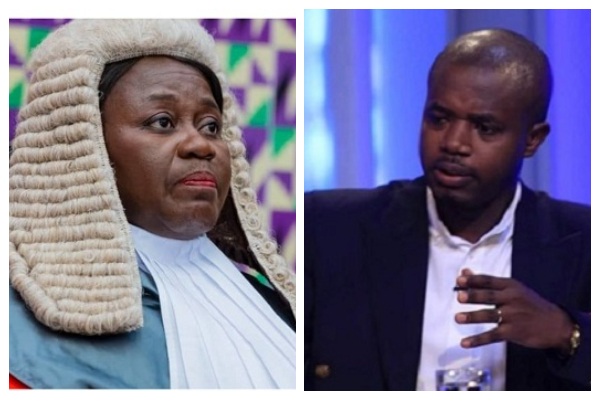“How do we meet the moment?” Premier Danielle Smith of Alberta asked the Canada Strong and Free Network (formerly Manning Centre) conference in Ottawa this week, calling for a patriotic groundswell to defend a Canada “worth fighting for.” But sometimes the moment meets you, as Smith and others — notably Liberal Leader Mark Carney and Conservative Leader Pierre Poilievre — are discovering. The CSFN was launched some 20 years ago by Preston Manning as part think-tank, part practical training school, but not directly engaged in partisan politics.
Manning is no longer involved and he did not attend his year, as he used to do as a benign patriarch. He has got his own conference to organize next month, a sort of Reform Party redux, aimed at firing up the western populism of 40 years ago. The CSFN serves as an annual omnium gatherum of Canadian conservatives.

Conservative premiers often attend, and last year Poilievre spoke. This year it was all very Trumpy, and Donald Trump is a very different kind of conservative, if conservative at all. The program included three former Trump administration officials, various crypto and vaping advocates and, most improbably, had Imperial Tobacco introduce Patrick Deneen, the political philosopher-cum-guru to Vice-President JD Vance and quondam thesis supervisor of U.
S. Secretary of Defence Pete Hegseth at Princeton. Premier Smith was certainly the lead attraction, a packed hall giving her a rapturous reception, while poor Prof.
Deneen had a scattered few listening to an erudite condemnation of liberalism (both the progressive and conservative strains) root and branch. His advice to read George Grant’s Lament for a Nation was a singular paean to the Red Tory tradition in Canadian conservatism. The assembly, preoccupied with the federal election, was on balance discouraged that Poilievre may lose.
He may not, and in these tumultuous few months in our politics, nothing should be assumed to be inevitable. But he is not cruising to a mammoth majority. It happens.
Recall that in 2003, a biography of Paul Martin was published entitled Juggernaut . There was wide talk of a historic majority in the offing. He won a minority in 2004 and was out in 2006.
Smith herself knows something about the moment meeting her. In 2014, she abandoned the leadership of the Wildrose Party to cross the floor to join the Progressive Conservatives of Jim Prentice. It went very badly and in 2015 the New Democrats ended the 44-year Tory dynasty in Alberta.
Smith bided her time and returned in 2022 to takeover the leadership of the United Conservative Party. The UCP had been put together by Jason Kenney from the wreckage of 2015. That impressive coalition of PCs and Wildrose came asunder when the pandemic drove a piercing stake between the two principal wings of the coalition, urban and rural, establishment Tories and grassroots reformers, elite business interests and populist disrupters.
The moment had shifted and even Kenney’s mighty majority win in 2019 was not sufficient to resist it. Another figure at CSFN was John Baird, Stephen Harper’s foreign minister. Baird got his start in elected politics in the 1995 Ontario election won by Mike Harris, who had run as “The Taxfighter” in 1990.
He came in third as Bob Rae’s New Democrats surprised everyone. By 1995, Ralph Klein in Alberta had slashed government spending and Paul Martin had done the same in Ottawa. The moment had shifted.
The moment met Mike Harris, who was more or less the same as he was five years earlier. Has another moment arrived? Poilievre was riding high five months ago. He was the same then as he is now.
There has been plenty of murmuring against the Poilievre campaign. Kory Teneycke, Doug Ford’s campaign manager, was also at CSFN, and he has not been murmuring, but shouting, that Poilievre and his team have committed “ campaign malpractice.” But have they? Their campaign has been careful, disciplined, with plenty of policy proposals and the massive rallies.
In the polls they are ahead of where the Conservatives were in 2019 or 2021. The moment though has shifted. Justin Trudeau has gone.
Jagmeet Singh has disappeared. Trump has arrived, and global chaos in his wake. Poilievre was polished and ready for a time that has passed.
The moment has shifted. For example, Abacus Data reported that, by a margin of 55-28, poll respondents credit Carney, rather than Poilievre, for eliminating the carbon tax. Is it possible that Poilievre could have done more to oppose the carbon tax? Is it his fault that the moment has shifted to the extent that Carney is credited for the change to a policy which he long favoured? It is certainly not Poilievre’s fault that the entire globe is transfixed on whatever should emerge from the Oval Office at any particular moment.
Could he have foreseen that the economic well-being of billions would be held hostage to the humours and vapours of a single man? Poilievre harnessed populist energies, which have a long and often noble history in Canada, on both the left and right, from the Prairies to Quebec. There is nothing shameful in that. Yet the moment has shifted and now the populist odour strikes many as a foul air.
That may pass soon, just as it blew in with greater force in recent months. But the election is just a fortnight away. Political leaders can convince themselves that just this strategy, just that policy, this clever positioning, that carefully adjusted message, will move the voters and shape the moment.
Sometimes that is true. But at times the moment shapes the voters, the Earth moves, and all on the landscape are cast down or lifted up. National Post Raymond J.
de Souza: Playing the new election game of 'who's out today?'Raymond J. de Souza: History repeats itself in the federal election campaign.
Politics

Raymond J. de Souza: Conservatives ponder how to 'meet the moment'

Federal election top of mind at annual Tory conference














